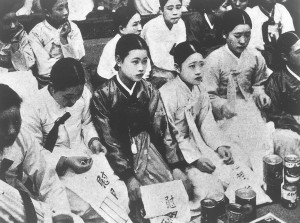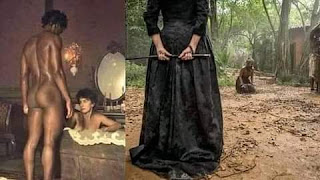Japan Revising Official Apology Over WWII Comfort Women Further Evidence Of Nationalistic Agenda
Japan Revising Official Apology Over WWII Comfort Women Further Evidence Of Nationalistic Agenda
The way the Japanese government is reflecting over the official apology for wartime sex slaves, might truly be upsetting the surrounding countries who all suffered from Japan’s past aggression during the Second World War. Yoshihide Suga, the Chief Cabinet Secretary said that evidence received from wartime sex slaves, known as comfort women, a structure to describe sex slave who were forced to serve Japanese servicemen during the Second World War, will be reanalyzed along with the 1993 Kono Statement.
According to Yoshihide Suga, the statements were taken from comfort women who felt safe enough to speak about it, now that the evidence will be “heard from behind closed doors.” A top government spokesperson said that the Japanese government will consider any necessary revisions, the Xinhuanet News reports.
Suga’s arguments come at a time when tensions seem to be raising in the international community, as several times now, Japan has been acting in a disturbing way, considering its revisionist maneuvers, nationalistic behavior, which seems to hit against other nations, military expansion and many other recent issues and debates .Top historians insist that around 200,000 to 400,000 comfort women were forced into sexual slavery, having to serve Japan’s Imperial Army. Countries where comfort women were forced to work in Korea, China, the Philippines and several other countries in Southeast Asia.
Evidence was given by 16 Korean women, according to a statement written by Yohei Kono, the Chief Cabinet Secretary in 1993, who admitted on Japan’s past mistakes and aggression and offered an official apology to the nation and mostly to those affected by the crimes. The statement contains words such as “undeniable”, underlining the national consciousness at the time, following a series of crimes that “severely injured the honor and dignity of many women.”
“The government of Japan would like to take this opportunity once again to extend its sincere apologies and remorse to all those, irrespective of place of origin, who suffered immeasurable pain and incurable physical and psychological wounds as comfort women,” the statement read. The same statement promised that the Japanese government will face all these crimes, rather than avoid them. Japan’s recent behavior, however, shows nothing but fire to the raising concerns inside the international community.Another recent statement came from Katsuto Momii, Japan’s Chief broadcaster at NHK, who said during his news program that comfort women existed in more countries during the Second World War, including France, Germany and South Korea.
Gary Bui, an Albuquerque resident, had only two photographs of his father for the last 40 years. In one of the photographs were his father and mother and in the other one were his older brother, his father and his mother. Bui said that the two photographs were the only proof he had that his father was somewhere in the world.
After seeing him for the first time in 40 years, Jerry P. Quinn, Bui’s father, joked over the fact that they don’t need a DNA test and you can just look at them and know they are father and son. Gary Bui was finally reunited with his father and years and years of searching for each other. They both wished one day they would meet but they never thought it would ever happen to them. Quinn said he never forgot his son and his mother and that they both stayed on his heart for the past 40 years, while Bui admitted that he didn’t think they would ever find each other.
Gary’s parents met when the Vietnam War was almost over, sometimes in the early 1970s but Quinn found himself forced to leave Vietnam with the United States forces on March 28, 1973, only half a year before Gary was born. Quinn was one of the very last 2,500 G.I.’s to leave Vietnam. That was the last time Quinn saw Gary’s mother and it was six months before he was born.
When communist troops took over two years later, Quinn lost contact with his family. “It just happened because of a result of water, devastation,” said Quinn. Gary lost his mother in Vietnam when he was 13 years old and he was shortly after taken to the United States, growing up in a foster home in New York. He married his wife in 1999 and in 2004 he moved to where his family lived in Albuquerque, the krqe.com reports.
Quinn’s story was heard by the British Broadcasting Corporation who decided to help Quinn with his search and try to locate his long lost son. BBC offered him a ticket to fly to Vietnam and find his wife and son. He did find some connections with his former wife Brandy but couldn’t find anything about Gary.
One day, Gary saw a post on written by an Amerasian who was searching for his own father, so he submitted a friend request and on that same page he saw that a man named Jerry P. Quinn was also writing about his son, whom he lost long time ago in the Vietnam War. Gary left a comment on the post, in which he wrote ‘keep searching.’
The two men met in Albuquerque for the first time. “We got each other now, though,” said Quinn.




Comments
Post a Comment